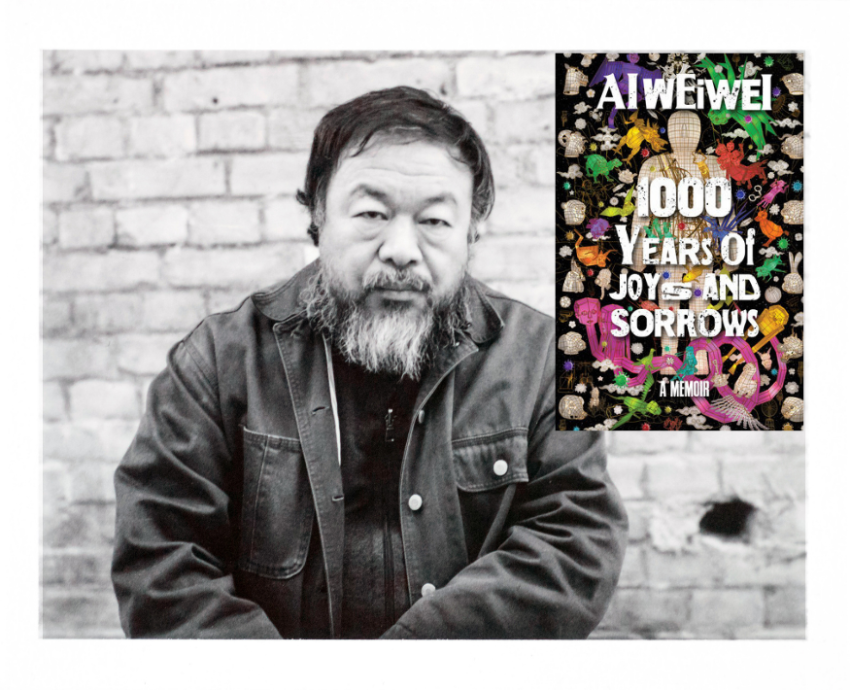
1000 Years of Joys and Sorrows: A memoir
By Ai Weiwei
The Bodley Head, 2021, 380 pp., $49.99 (hardback)
Ai Weiwei is a prolific Chinese conceptual artist, who is most famous for his fearless campaigning for democratic rights in his homeland. He has been living in exile since 2015.
In this wide-ranging memoir, he tells the story of his family against the background of China’s tumultuous revolutionary history. He also relates his personal conflicts with Chinese officialdom, his arrests and sufferings.
Ai Weiwei’s father, Ai Qing was a pro-revolutionary poet who was tossed from one end of China to the other by the Civil War and the Japanese invasion of the 1930s. He was jailed and tortured by the Kuomintang government.
Eventually, he was personally invited to join the Chinese Communist Party by Zhou Enlai and became a close neighbour of Mao Zedong in the liberated zone established at the end of the Long March. It was not long before his free-thinking got him into trouble with the CCP leadership and he had to perform self-criticism.
Following the 1949 revolutionary victory, the CCP initiated the Hundred Flowers campaign, encouraging intellectuals to offer criticisms of the government. After two years, the critics were met with the Anti-Rightist campaign, in which they were suppressed.
Ai Qing was one of those targeted as a Rightist. It was here that the family’s misfortunes began, through which Ai Weiwei developed the personal mettle to stand up to authority.
Ai Weiwei went with his father and brothers to live in freezing areas close to the USSR border. They literally lived in a hole in the ground.
In their first round of exile, Ai Qing worked as a forester, but in the second exile he was forced to clean the settlement’s toilets by hand. He and his children suffered daily humiliations meted out by the authorities.
Ai Qing lost the vision in one eye due to poor nutrition and a lack of medical treatment.
After the Anti-Rightist campaign the Cultural Revolution brought more woes to the family. Ai Qing was not rehabilitated until the 1970s, after the Gang of Four’s downfall.
He became the vice-chairman of the Chinese Writers Association, which had condemned him as a Rightist in the first place.
From 1981 to 1993, Ai Weiwei lived in the United States initially as a student but quickly became a New York street artist, living an aimless, bohemian, hand-to-mouth existence. It was there that he became interested in the avant-garde form of conceptual art.
He does not relate any contacts with radical political currents in the USA that could have provided him with an alternative understanding of China’s history. By his account, he was an observer of street life rather than a participant in activities.
After returning to China, Ai Weiwei built an international reputation as an artist. In 2005, he was invited by the biggest Chinese online platform, Sina Weibo, to start blogging. He quickly built a huge readership for his rants and raves against the authorities.
His campaigning reached a zenith in 2008, following an earthquake that destroyed a school in Sichuan province. Ai Weiwei exposed the fact that the authorities had lied about the number of children killed and were refusing to investigate the corrupt, substandard school construction.
During this “citizens’ investigation” the police viciously bashed him, resulting in a head injury that later required life-saving emergency surgery.
His blog was shut down in 2009, whereupon he turned to Twitter until 2013. Chinese authorities then hounded him for alleged tax evasion, arresting and keeping him in a secret prison for an extended period.
Since leaving China, Ai Weiwei has campaigned for human rights in Europe and elsewhere.
I sought out Ai Weiwei’s memoir based on the publisher’s promise that it “offers a deep understanding of the myriad forces that have shaped modern China”, only to be disappointed. Ai Weiwei is capable of describing, but not illuminating the Chinese government’s totalitarianism.
From his self-description he appears to be a supreme egoist, which gives him impervious amour against the Chinese government’s pressure. But he displays little political grasp.
His book is a searing denunciation of what could rightly be called “Stalinism with Chinese characteristics” and for that it is well worth reading. But for an in-depth analysis explaining how China got to this point one needs to seek other sources.